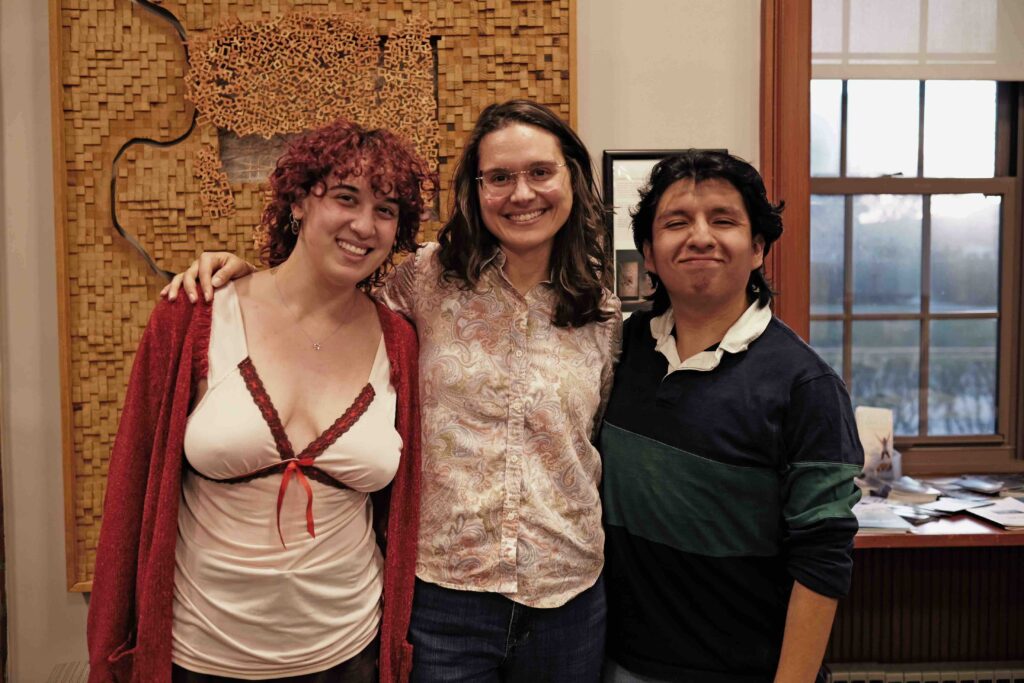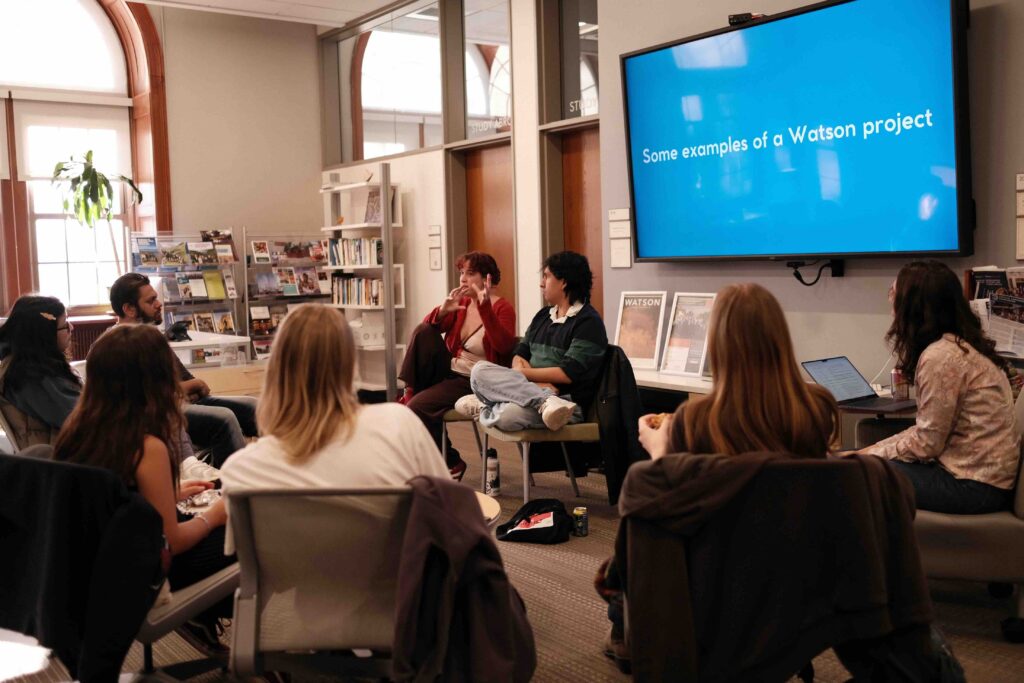Wesleyan is one of 41 partner institutions whose graduating seniors are eligible to apply for the Thomas J. Watson Fellowship. This fellowship, often known on our campus simply as “The Watson,” provides $40,000 in funding for fellows to engage their unique individual interests on the global scale. Fellows create their own original projects, execute them outside of the United States for one year, beginning the summer after graduation from Wesleyan. During their fellowship year, Watson fellows where to go, who to meet and when to change course. Each year, applications to the Watson Fellowship are coordinated through the Fries Center’s Office of Fellowships and up to four candidates are nominated by members of our campus Fellowships Committee.
This year, two Wesleyan seniors have been awarded a Watson Fellowship:
- Cate Levy ’24 will pursue a project titled “Community Responses to Sexual Discrimination and Patriarchal Violence,” through which she aims to learn about different responses to the sexual discrimination, abuse, and injustice bred from patriarchal systems and gain a deeper understanding of imaginative approaches that fight against global misunderstandings of love, sex, and pleasure. This project will take her to Spain, Italy, Mexico, Peru, Colombia, Argentina, Uruguay, Germany, and the Netherlands.
- Dylan Campos ’24 has titled his project “Communities Cultivate Cities: Urban Agriculture as Power.” Through his travels, Dylan aims to learn how urban and periurban environments use agriculture to mobilize social power, organize, and address food insecurity. As a Watson Fellow, Campos plans to travel to Australia, France, Mexico, the Netherlands, Portugal, and Singapore to learn more about urban and peri-urban agriculture as spaces for political engagement and community organizing.
As members of the 56th class of Thomas J. Watson fellows, Campos and Levy are two 35 graduating seniors nationwide to be awarded the fellowship.

About the fellows
Levy is from Atlanta, GA, and at Wesleyan she is majoring in Anthropology and Hispanic Literature and Cultures. She has recently completed a senior thesis in the Anthropology department about her time working at a boutique sex toy store in Santiago de Chile (she was awarded a Goffe Grant to fund this fieldwork during summer 2023). Levy’s ethnography focuses on themes of class, consumerism, sex education, devalued labor, and more. During her time at Wesleyan, Levy has been a tutor for the Wesleyan Center for Prison Education and a doula with the Wesleyan Doula Project. She is on the Anthropology Majors Committee, where she helps plan department events and get people excited about learning anthropology. Her Watson project grows from her academic experiences but is also a chance to break away from formal research to explore how people working within a range of projects, businesses, and organizations relate to her topic.
Campos is from Branford, Connecticut, and at Wesleyan he is completing a double major in History and Environmental Studies and a minor in Global Engagement. His passions center on urban sustainability, agricultural & food justice, and social and racial equity, interests that are reflected in his engagement on campus. At Wesleyan, Campos works in the Office of Sustainability and is involved in Sunrise Movement Wesleyan, the Environmental Solidarity Network, the Sustainability Strategic Plan Committee, the History Majors Committee, and the Global Engagement Minor Student Advisory Board. His proposed Watson year builds on comparative research done during his junior year abroad about urban food insecurity in Argentina, Spain, and South Africa and his senior year research on food sovereignty and peri-urban agriculture in Buenos Aires. Campos received the College of the Environment Research Fellowship and the Davenport Study Grant to support this research. (Read more about Dylan’s project plans in an interview with Coexist, the blog of the Baily College of the Environment.)
Associate Director for Fellowships, Erica Kowsz, notes that Campos and Levy exemplify many of the qualities that the Watson Foundation looks for in its fellows (leadership, imagination, independence, emotional maturity, courage, integrity, resourcefulness, and responsibility). They have both been great ambassadors for the Watson on our campus, recently offering tips on applying and insights from their application experience to a full room at the Fries Center for Global Studies on Thursday April 25.

Advice on Applying for the Watson Fellowship
When asked for what advice they would offer to those interested in applying for the Watson Fellowship, Levy said, “Your Watson project should be something you can’t stop thinking about! You will be doing this project for a whole year, so your passion needs to drive your work… It’s better to be authentic than make up a project you think people want to hear about. What do you want to do? That’s the most important thing. “-
Campos also emphasized the need for enthusiasm and ambition: “Do your research and think big! Your Watson Year could be anything, so nothing’s off the table.”
Members of the Class of 2025 will need to meet an October 10, 2024 campus deadline to be considered for the Watson Fellowship. Those interested in applying should read the First Steps and How to Apply sections of the Watson Fellowship page on the Office of Fellowships website and then reach out to fellowships@wesleyan.edu to get on the list to receive an invitation to the online application and updates about the Watson application process this year.


